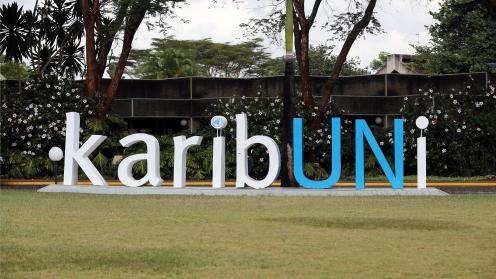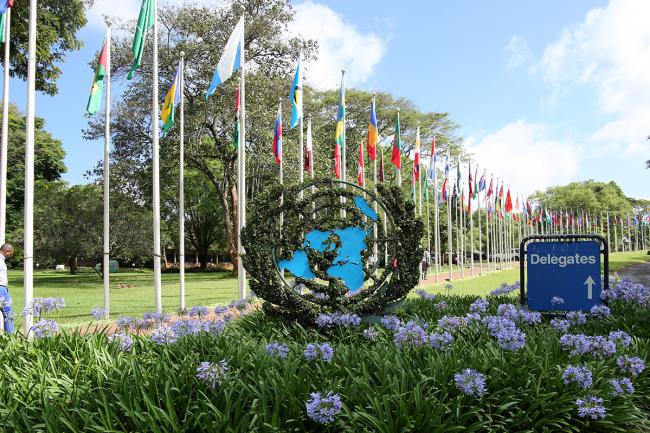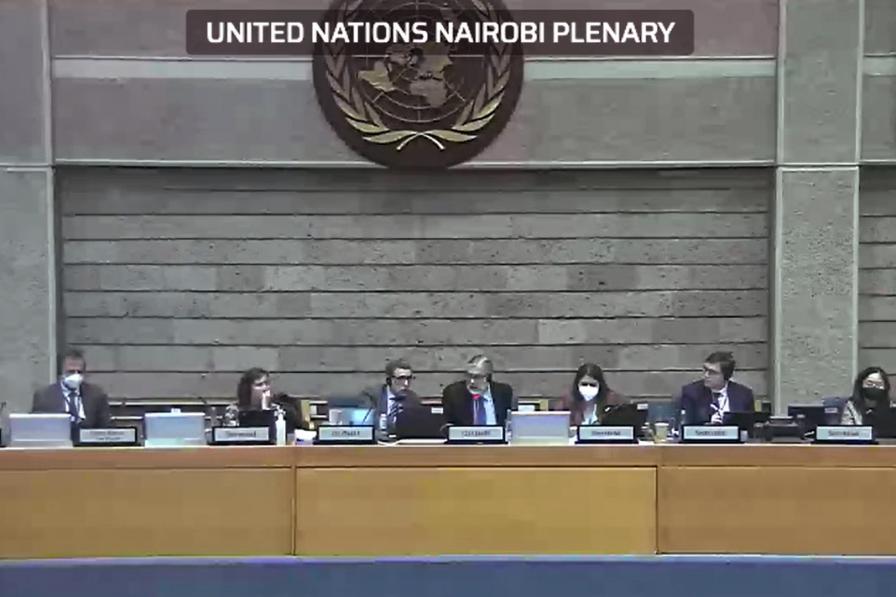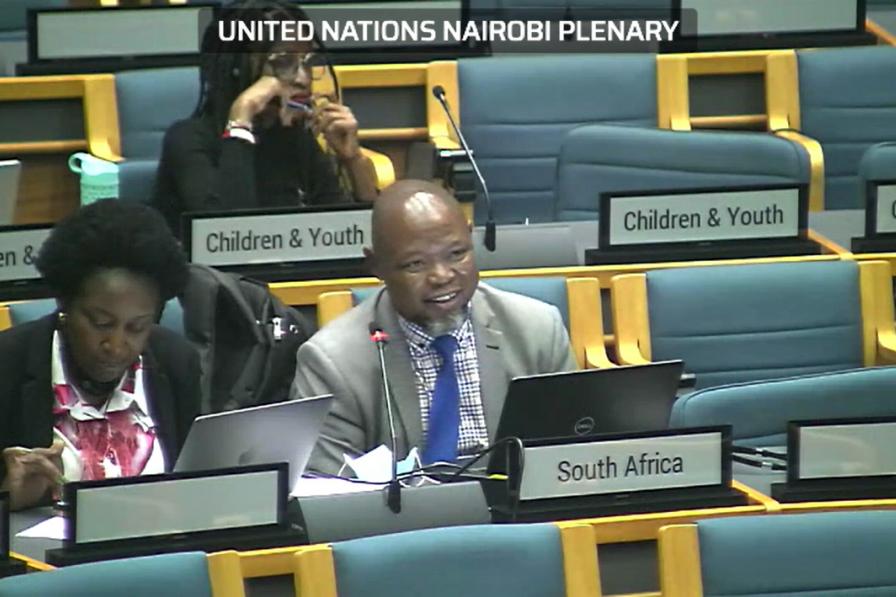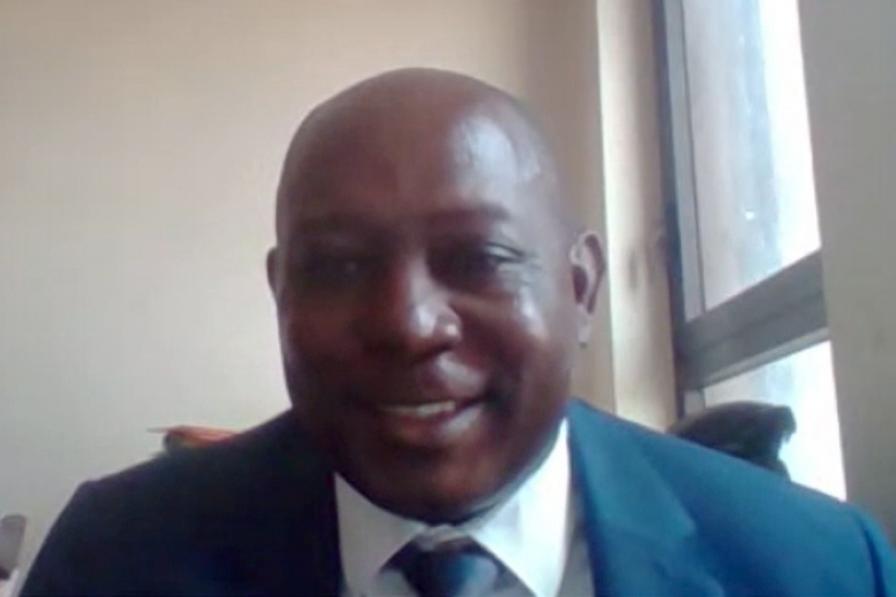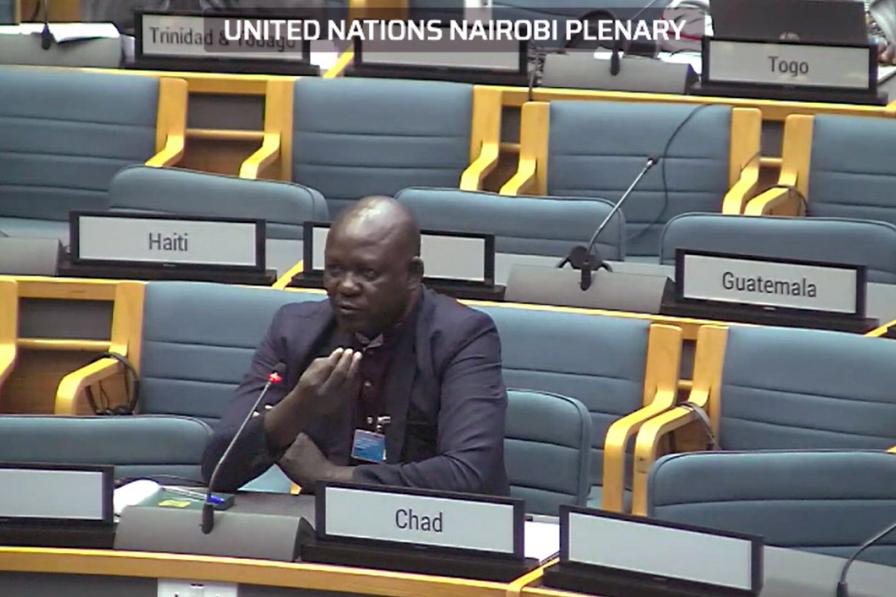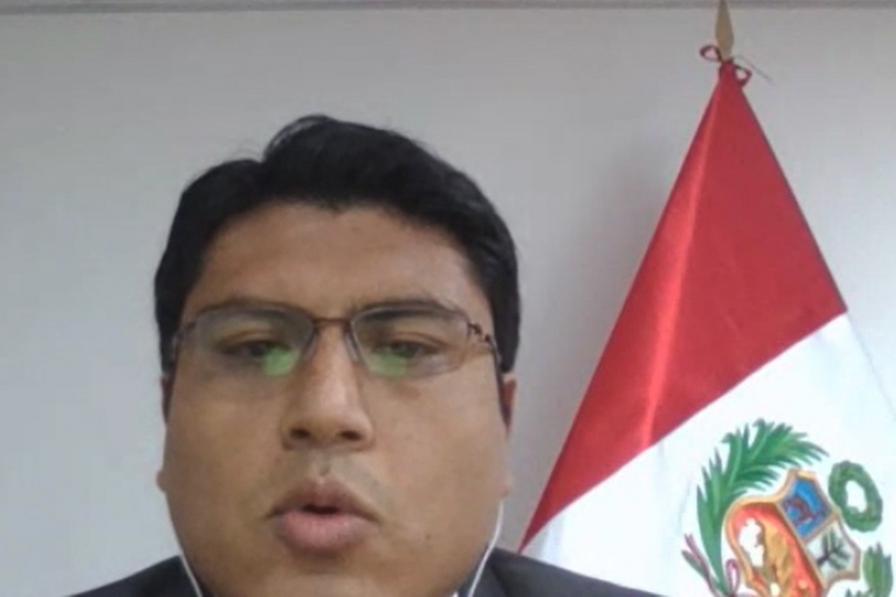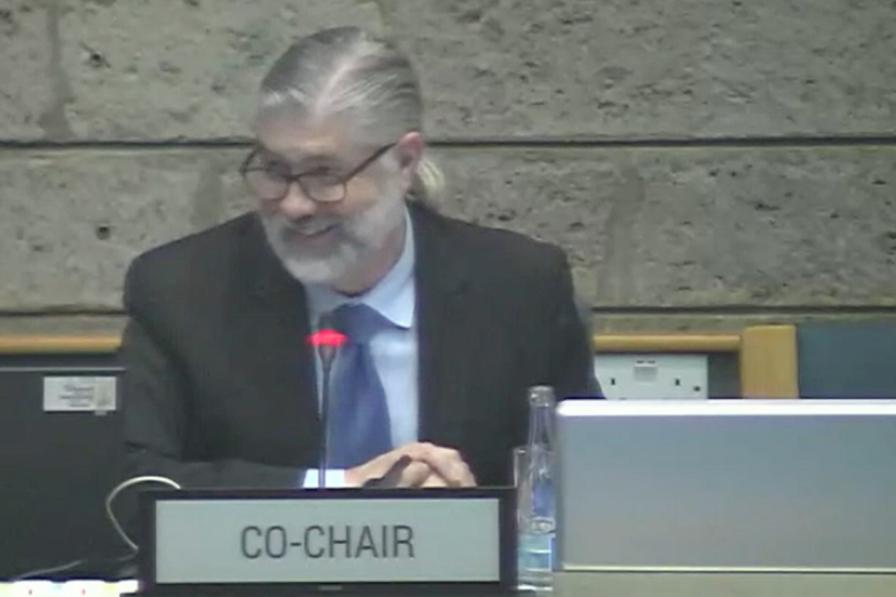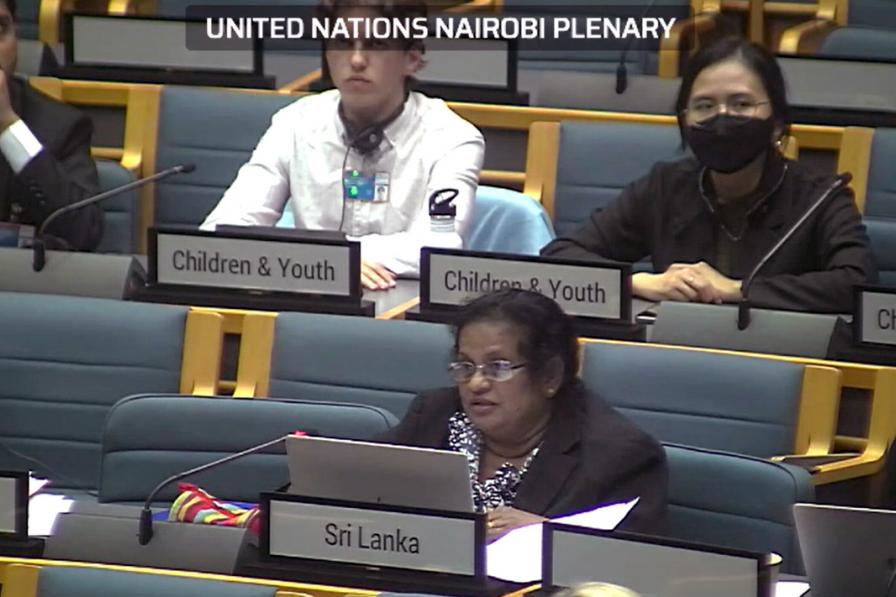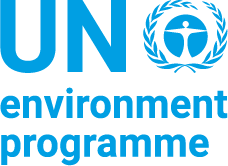The second day of the resumed First Global Meeting of the National Focal Points Under the Fifth Programme for the Development and Periodic Review of Environmental Law (Montevideo Programme V) started with a moment of silence for Orlando Jorge Mera, Minister of Environment, Dominican Republic, who was murdered in his office.
The day’s discussions focused entirely on the question of setting priority areas for Programme implementation. The Co-Chairs reported they would prepare and circulate a “non-paper” summarizing elements of consensus and outlining possible decision paths that would serve as a basis for discussion on Wednesday.
Most delegates expressed support for focusing on the three priority areas identified by the Secretariat based on a survey of national focal points, namely climate change, biodiversity, and pollution.
While supporting the triple focus, Switzerland called for measurable activities, framed under a short list of concrete priorities to be implemented under a realistic schedule. Finland supported more detailed description of the Programme’s activities prioritized by countries. Canada urged being realistic about what Programme V can achieve within its remaining eight years. The Netherlands said it was not realistic for the Programme to address all relevant areas under the three priorities before 2030, and that the First Global Meeting’s focus should be on what can be realistically accomplished in the next two years prior to the Second Global Meeting. The US agreed, noting the Programme’s direction can be adjusted every two years.
Others suggested specific focuses in diverse areas. The African Group supported focusing on, inter alia: transboundary aspects of pollution, integrated regional approaches to wildlife crimes and conservation and restoration of nature, and the impact of climate change on vulnerable communities. Guyana suggested work on environmental law regarding: the post-2020 global biodiversity framework; the development of low-carbon development; valuation of ecosystem services; and environmental crime and liability. Peru suggested focusing on risk to ecosystems due to environmental crimes such as trafficking of wildlife or mercury released by illegal mining. Norway urged aligning the work on pollution with the ongoing negotiations for a multilateral environmental agreement (MEA) on plastic pollution.
Burkina Faso, Chad, and Sri Lanka urged linking the three issue areas with Programme activities on awareness raising and communication, since these were critical to ensuring that environmental legislation adopted actually influenced behavioral changes. Major Group for Children and Youth called for explicit inclusion of young lawyers, law students, and scientists in Programme implementation plans. The International Center for Comparative and Environmental Law urged Programme work on legal indicators. The Stop Ecocide Foundation called for work in the Programme on ecocide.
Brazil cautioned against further definition of activities, noting this could be too restrictive in the long run for countries that require legal support according to their specific needs and circumstances. She urged “finding a middle ground between flexibility and focus.” Ethiopia urged taking subregional and regional priorities into account. The Center for International Environmental Law cautioned against too strong a focus on domestic law, noting the Montevideo Programme’s past contributions to developing MEAs.
Several delegations suggested gearing work in the three issue areas to the implementation needs of the respective MEAs involved. Barbados asked for help in harmonizing reporting obligations under MEAs. Norway asked if the Secretariat had conducted a survey of MEA secretariats on their implementation needs. Switzerland and the US said Programme V work should provide value added to work already being undertaken under MEAs. Finland supported strong partnerships with MEA secretariats and identifying gaps to provide support.
Several delegations called for presenting roadmaps like the one already developed for air pollution. France called for greater emphasis on access to environmental information and environmental justice in any roadmaps developed.
To receive free coverage of global environmental events delivered to your inbox, subscribe to the ENB Update newsletter.
